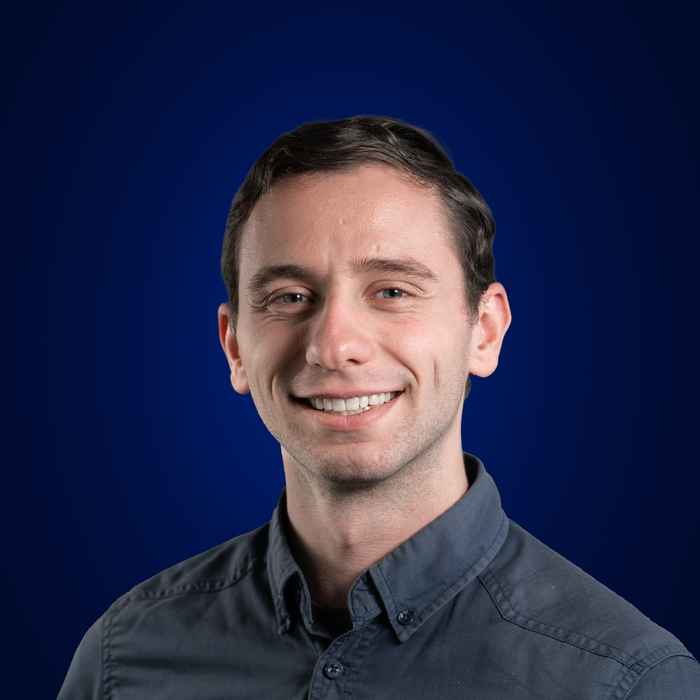Nathan Keyaerts
Engineer at SUE B.V.

Why did you choose this programme at the time?
I was looking for a university course that would allow me to delve deeper into the engineering of large IT systems. I had previously completed a master’s degree in Mons, Belgium, but I felt it didn’t go into enough depth. It was designed to provide a broad education, but after finishing, I didn’t feel adequately prepared to enter the IT industry. OS3 (Open Standard, Open Software, and Open Security: the core value and nickname of this programme) was the only master’s programme I found in Europe that offered the depth I was seeking.
How much freedom did you have when selecting courses or projects? Are there opportunities to tailor the programme to your interests?
At OS3, you follow a set curriculum, but you also have the opportunity to conduct two research projects, each lasting one month. These projects allow you to explore topics that interest you more deeply. Additionally, many courses include smaller projects where you can investigate specific subjects of your choice. This structure gave me the flexibility to tailor the programme to my interests, particularly in IT infrastructure and automation.
How practical or theoretical is the programme?
The programme is very practical for a WO (university-level) course, which is one of its key strengths. It combines a strong theoretical foundation with hands-on practical work, ensuring students gain a comprehensive understanding of the material. This blend of theory and practice prepares students well for both academia and the industrial world. After completing the programme, I felt ready to tackle challenges in either field.
How would you describe the atmosphere within the programme? Do you interact a lot with fellow students and lecturers? Are there many group assignments, or is the focus more on individual work?
The atmosphere was excellent. Since the programme is quite intensive, all students go through similar experiences, which fosters a strong sense of camaraderie. The class size is relatively small for a master’s programme, which means students have close contact with lecturers. There are also many group assignments, which help you get to know your fellow students better. This collaborative environment made the experience even more rewarding.
What types of thesis or graduation projects are possible? Can you provide an example of your own project?
I completed two research projects during my master’s.
-
The first project was titled Industrial Programmable Logic Controller (PLC) Automation with Configuration Management Tools. The goal was to investigate how to automate the configuration of PLCs. After conducting research, we developed a proof of concept using Ansible.
-
My second project and thesis focused on evaluating TCP Prague. Vendor-specific implementations of this standard, such as Google’s BBRv2, are supposed to adhere to the standard, but our research revealed that they often do not.
These projects were a great combination of academic research and practical implementation, allowing me to apply theoretical knowledge in real-world scenarios.
Was it easy for you to find a job after your master’s? How did you end up in your current workplace?
This is actually a fun story! At OS3, every student is given a physical server to use for assignments and personal learning throughout the programme. Near the end of the year, I knew I would need to return the server after graduating, so I decided to buy a second-hand server on Marktplaats (a Dutch online marketplace). When I went to check it out, I struck up a conversation with the seller, Koen, who happened to be an engineer at SUE. One thing led to another, and I was introduced to the company. Although I explored other opportunities, I felt that the atmosphere and prospects at SUE were the best fit for me.
What advice would you give to someone considering this master’s programme?
If you’re ready to work hard for a year and gain both theoretical and practical knowledge in security, networking, and the IT industry in general, this master’s is perfect for you!
The motto among the teachers and students during my time was: “Diamonds are made under pressure!” This reflects the challenging yet rewarding nature of the programme.